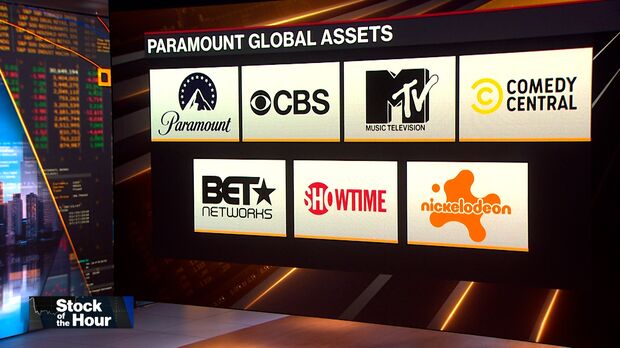Recent announcements from Meta and Amazon signal a significant retreat from diversity and inclusion commitments, following rising political tensions and backlash from conservative activists. Both tech giants have decided to scale back their respective diversity programs—a development mirroring a broader trend among American corporations navigating a contentious political landscape.
Meta, the parent company of Facebook, Instagram, and WhatsApp, is discontinuing various diversity efforts laid out in a memo to staff, citing a "shifting legal and policy landscape." This decision closely follows a Supreme Court ruling affecting race-based admissions in higher education and comes amid pushback against the term "DEI" (Diversity, Equity, and Inclusion), characterized by Meta as becoming "charged."
Amazon, meanwhile, is winding down outdated programs related to representation and inclusion, aiming for completion by the end of 2024. Candi Castleberry, Amazon's VP of inclusive experiences and technology, emphasized the need for focusing on programs yielding proven outcomes rather than individual group initiatives.
Corporate giants like Walmart and McDonald's have also made similar moves, reflecting a cautious approach to diversity amidst fears of political or legal repercussions. Conservative factions have rallied against perceived progressive activism in corporations, highlighting cases such as Bud Light and Disney, which faced backlash for their efforts to engage with LGBTQ markets.
The erosion of diversity initiatives can be traced back to the re-ignition of social justice movements following George Floyd's murder in 2020. Yet, recent court rulings deemed these programs discriminatory, fueling arguments among critics. Meta, in its latest moves, will also shift away from working exclusively with diverse suppliers to engage more broadly with small and medium enterprises, while also refocusing training programs to mitigate bias universally.
Reactions to Meta and Amazon's betting on corporate inclusion have been mixed. Critics, such as conservative activist Robby Starbuck, celebrate the rollback, whereas advocacy organizations like the Human Rights Campaign express concern over the long-term implications for workplace equality and business growth.
In a related context, Meta's recent moves come alongside shifts in its leadership and public stance, indicating its ongoing struggle to balance corporate governance with external pressures. Mark Zuckerberg, during a recent appearance, acknowledged previous challenges faced by the company regarding content moderation and emphasized the need for a more proactive approach in the face of governmental pressures.
In summary, as diversity efforts become increasingly politicized, the corporate landscape appears to be experiencing significant shifts, raising questions about the long-term commitment to inclusion that may have been hard-fought and culturally crucial in recent years.
Meta, the parent company of Facebook, Instagram, and WhatsApp, is discontinuing various diversity efforts laid out in a memo to staff, citing a "shifting legal and policy landscape." This decision closely follows a Supreme Court ruling affecting race-based admissions in higher education and comes amid pushback against the term "DEI" (Diversity, Equity, and Inclusion), characterized by Meta as becoming "charged."
Amazon, meanwhile, is winding down outdated programs related to representation and inclusion, aiming for completion by the end of 2024. Candi Castleberry, Amazon's VP of inclusive experiences and technology, emphasized the need for focusing on programs yielding proven outcomes rather than individual group initiatives.
Corporate giants like Walmart and McDonald's have also made similar moves, reflecting a cautious approach to diversity amidst fears of political or legal repercussions. Conservative factions have rallied against perceived progressive activism in corporations, highlighting cases such as Bud Light and Disney, which faced backlash for their efforts to engage with LGBTQ markets.
The erosion of diversity initiatives can be traced back to the re-ignition of social justice movements following George Floyd's murder in 2020. Yet, recent court rulings deemed these programs discriminatory, fueling arguments among critics. Meta, in its latest moves, will also shift away from working exclusively with diverse suppliers to engage more broadly with small and medium enterprises, while also refocusing training programs to mitigate bias universally.
Reactions to Meta and Amazon's betting on corporate inclusion have been mixed. Critics, such as conservative activist Robby Starbuck, celebrate the rollback, whereas advocacy organizations like the Human Rights Campaign express concern over the long-term implications for workplace equality and business growth.
In a related context, Meta's recent moves come alongside shifts in its leadership and public stance, indicating its ongoing struggle to balance corporate governance with external pressures. Mark Zuckerberg, during a recent appearance, acknowledged previous challenges faced by the company regarding content moderation and emphasized the need for a more proactive approach in the face of governmental pressures.
In summary, as diversity efforts become increasingly politicized, the corporate landscape appears to be experiencing significant shifts, raising questions about the long-term commitment to inclusion that may have been hard-fought and culturally crucial in recent years.

















